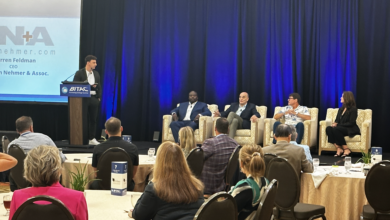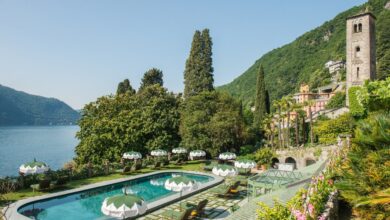
Process Innovation Should be the Engine for Technology Implementation within Your Hotels
By Larry and Adam Mogelonsky | September 27, 2023
Reflecting on the past year and a half, have you noticed that the pace of the world has seemed to become relentlessly fast? At first, it was easy to chalk this up to playing catch-up from the temporary slowdown of daily life that was the pandemic. But this current tempo is the real new normal, especially with the dawn of publicly available generative artificial bits of intelligence like ChatGPT that are implied to be the provocateurs for widespread creative destruction in both travel and hospitality.
The feats already accomplished in the past six months alone by these pseudo-strong AIs can bestow a deep sense of powerlessness, not because of any near-future doomsday scenario but because they are indicative of a far larger trend for the hotel industry. To give you a sense of this rapidity, check out Korea-based MyRealTrip’s AI Trip Planner, an itinerary platform built in just two days using ChatGPT.
And with this technological renaissance, travelers’ expectations are likewise evolving at an accelerating pace, so much so that a wide swath of businesses are soon to be left behind by the invisible hand, whether that’s reflected through financial stagnation, rate commoditization, an inability to keep talent or insufficient CAPEX to revitalize the physical assets.
Maybe the two of us are getting a bit hokey by opening with a feeling, an abstraction, and a prophecy rather than cold, hard statistics, many of which for 2023 have been carved up to show that all is quiet on the hotel front. But we foresee a series of converging existential problems – recessionary impacts, perpetual staffing shortages, a downsized corporate segment, leisure segment brand apathy, a generational brain drain into other sectors, the aging out of the baby boomers and unwieldy legacy tech stacks, to name a few.
Righting the ship to meet all these challenges will take years, shrewd planning, vision, and gumption. Yet none of that will happen if a hotel’s underlying engine – that is, how its people get work done – hasn’t had its oil checked since the 1990s. This is where ‘process innovation’ becomes instrumental to success.
Teams and Tech
From our past and present assignments where we work with independent upscale and luxury hotel owners to chart a course and avoid this existential torpor, what we found is that, while upgrading a brand’s technology is instrumental to modern hospitality, the way teams work is equally if not even more important to success. To this end, we productized this observation as the Teams N Tech (TNT) Audit that looks specifically at the top issues clogging up the organizational engine in both arenas with process innovation recommendations so that the whole team can pick up the pace.
Here’s what happens in many cases. A property has gone through the iterative, oft painstaking and consummative process of upgrading its tech stacks, yet its human stacks remain firmly stuck in the 20th century. Departmental silos are common, leading to goal misalignment, office politics that waste resources, lowered morale and reduced overall productivity. Meanwhile, team empowerment and agile decision-making exist in name only, without the proper policy framework to prevent homogenized groupthink outcomes.
Too much time is wasted on meetings, emails, and reports that no one reads, and that’s before any tech stack automation that we may suggest. The result is that the deployment of new technology is stifled by all these process logjams. Thus, fix the process and you fix the tech implementation.
Though we would always advocate the prudence in ‘measuring twice and drilling once’, there is a cutoff point where inaction in the face of rapidly evolving market conditions leads to both significant opportunity costs – notably, lost revenue from not maximizing per-guest spend or from guests going elsewhere – and an inability to get caught as those market changes start to accelerate in pace.
This is to say, what’s the point of rolling out the perfect technology solution two years from now if, in the interim, you’ve lost guests to your competitors, failed to generate healthy ancillary spend from those customers that remain and are turning over good team members every year due to their frustrations with how the business operates?
Automating Meetings
By now, you may think this article is a bait and switch in that you were expecting to read about technology only to discover a passage about culture. In the 2020s, these are one and the same. Hence, an improvement to how your team works will enable them to reach decisions faster as to budgets for tech exploration, which vendors to select and the workflow necessary to get systems implemented.
One huge wrench in nearly every hotel’s engine is that the average manager is drowning in meetings, sucking up their available time and energy for self-directed ‘real work’. And this insight is hardly revelatory, with the likes of Shopify’s calendar purge enacted in early January or (one of our favorites) Amazon’s two-pizza rule which states that if the attendees of a meeting cannot be adequately fed by two decent size pies, then there are too many attendees.
Finding the best fit differs by organization, but here are some policy guidelines we’ve deployed:
- Shorter Meetings: Asking first if an hour timeslot can be compressed into half an hour, then look at early adjournments (50 minutes versus an hour; 25 minutes versus half an hour) so attendees have time to reflect
- Structured Meetings: Every gathering should have a detailed agenda that is followed sequentially, while every attendee should have a specific purpose for being present with specific tasks assigned to those attendees at the meeting’s conclusion (if not, then they shouldn’t be there) as well as a designated minute-take for others who couldn’t attend to read.
- Clustered Meetings: An open calendar where meetings can be slotted in whenever isn’t how you maximize individual productivity because people need dedicated blocks of time to attain a ‘flow state’, so instead bunch meetings on specific days of the week, don’t schedule recurrent meetings unless they are absolutely critical and empower teams to send only one representative.
- Normalized Solo Time: Aside from letting teams divide and conquer, hotel cultures must work to change the act of declining invitations to something that’s accepted to protect each manager’s time, especially if these meetings interfere with this team member’s ‘flow blocks’ or dedicated periods of deep, concentrated, creative work that should also be visible on a shared calendar
Email Process Innovation
When we are referring to process innovation, we aren’t homing in specifically on the digital transformation tools that are enabling hoteliers to become software-first operators, but rather more broadly and crudely to anything that will increase the rate at which business is conducted.
Yet this speed improvement very often involves technology, even so far as using certain platforms to reduce the sheer volume of electronic information we face daily and streamline our attention. One of the culprits is the time suck of too many meetings, for which the solution is a combination of a shared, cloud-based calendar, an online calendar booking platform and a cultural shift away from ‘meeting for any reason possible, even when a well-written memo will suffice’.
Then, naturally, you must consider how that well-written memo will be disseminated. Email perhaps? Most managers are receiving hundreds of fresh ones in their inboxes every day and an attached PDF is likely to get lost in the shuffle. Besides all the marketing communications from third parties diverting the team’s attention, also compounding this second-time suck of too many emails are the ongoing back-and-forth message threads between two people that also have a handful of other managers copied.
The underlying problem here is psychological; continuous email threads are interruptive to the real work that advances business goals, both for the two or three active correspondents as well as for all other silent witnesses. Individual job satisfaction is largely derived from helping create achievable measurable results, and the two of us highly doubt that anyone would be fulfilled if all they ever did in life was attain the illusory ‘inbox zero’.
Hence, part of team empowerment means trusting that associates and managers will dutifully respond to emails addressed only to them so that colleagues or superiors don’t need to be copied to keep everyone accountable. Aside from subscribing from everything, this policy shift may be the second biggest action to reducing email volume and thereafter everyone’s stress levels.
Conclusion
While it would be great to prognosticate about, for instance, how future-forward technologies like BingAI or the metaverse will impact travel search and guest booking behavior, what’s far more important at this time is to take stock of the fundamental workflows that will liberate your teams’ time so that they can take advantage of the latest and greatest.
The world isn’t slowing down, and the only way for any hotel to keep pace is to start moving faster. From our consultancy’s TNT Audits, we know that means more efficient meetings, more efficient communications, and more efficient decision-making. While achieving this often involves tech, like nearly every other aspect of hospitality, it’s the people that ultimately matter the most.





Get involved!
Comments